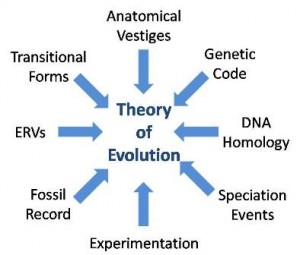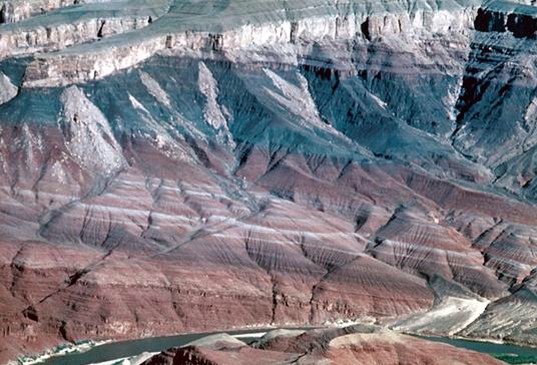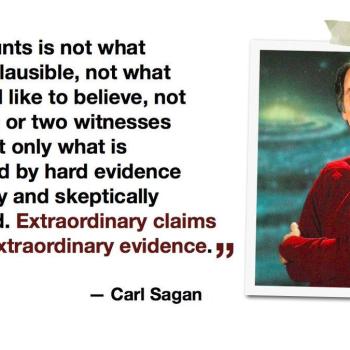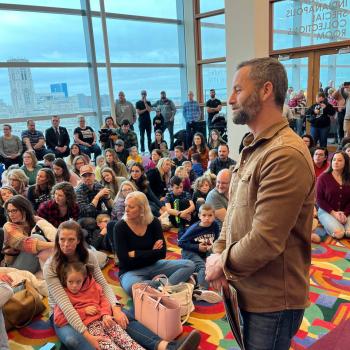Maybe this is why young-earth creationism is so disturbing and offensive.
Young-earth creationists will pretend that mainstream science journals are not filled with abundant evidence for evolution – the course it has taken, the processes involved, and the genetic changes that underpin it. They will point to the things that scientists do not yet know, as though gaps in our knowledge were an argument against the best reconstruction experts have been able to put together. When pieces to a puzzle are missing, it doesn’t invalidate the way you have put the pieces that you do have together, especially when they snap together naturally without force.
When it comes to young-earth creationism, however, there aren’t just gaps, there is actual abundant counter-evidence. Chalk beds formed from billions of microorganisms. Light from distant stars. Radiometric dating. Fossils. Genetic evidence for our shared heritage with other living things on this planet.
So what do young-earth creationists say when this evidence is presented to them?
“Maybe…”
 They say that maybe creation took place near a white hole, with resultant time dilation. Maybe God killed and compressed the microorganisms to make the Earth look older (or punished them for humanity’s sins during the Flood). Maybe the speed of light and rate of radioactive decay have not been constant.
They say that maybe creation took place near a white hole, with resultant time dilation. Maybe God killed and compressed the microorganisms to make the Earth look older (or punished them for humanity’s sins during the Flood). Maybe the speed of light and rate of radioactive decay have not been constant.
These are not serious proposals. They are wildly speculative and highly improbable ad hoc attempts to crowbar the evidence into their preconceptions. And yet when scientists offer a far more reasonable “maybe” that actually fits naturally into the pattern of the existing evidence, young-earth creationists treat it as evidence against mainstream science.
Maybe it is time young-earth creationists admitted that if mainstream science’s plausible “maybes” are a problem for evolution and astronomy and geology, then their own “maybes” are a bigger problem for their own stance.
And maybe it is time that those who care about truth in churches were more outspoken about the fact that young-earth creationism is detrimental to Christians’ spiritual lives – that it is training people to not care about the truth, but to instead pridefully assume they already have it, and to dismiss the well-reasoned arguments from those who know more about a topic than they do, while propping up their own preconceptions with “maybes.”













